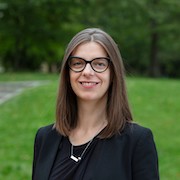
The goal of the project is to initiate a new discussion in the philosophy of economics by exploring philosophical implications of the affinities between economics and the so-called cyborg sciences: early computer science, research on artificial intelligence, operations research and cybernetics. The project builds on the historical work on the post-WWII behavioural sciences that study the influence that the cyborg sciences had on the emergence and development of modern economics. If historians are right about the origins of modern economics, then the broadly accepted view of economics as a science of human behaviour is importantly challenged and should be revised. The project will also contribute to debates on automation and artificial intelligence by pointing out that via modern economics, we have already a long history of dealing with and using models of ‘non-human’ agency in market and policy-practices. Finally, it will investigate whether economics as a cyborg science is well-suited for addressing the current societal challenges (e.g. rising inequality, social and economic consequences of new-tech transformations, economic aspects of climate change and of recent pandemic).
Project title:' From the cyborg origins of modern economics to its automated future. Towards a new philosophy of economics' & 'Values, controversies, and implications of economic research on automation of labour and inequality'
Area of research: Philosophy
Fellowship period: 15 Sep 2021 - 31 Jan 2024
Fellowship type: AIAS-COFUND & AIAS-PIREAU II Marie Skłodowska-Curie fellow

This fellowship has received funding from the European Union’s Horizon 2020 research and innovation programme under the Marie Skłodowska-Curie grant agreement No 754513 and The Aarhus University Research Foundation.
